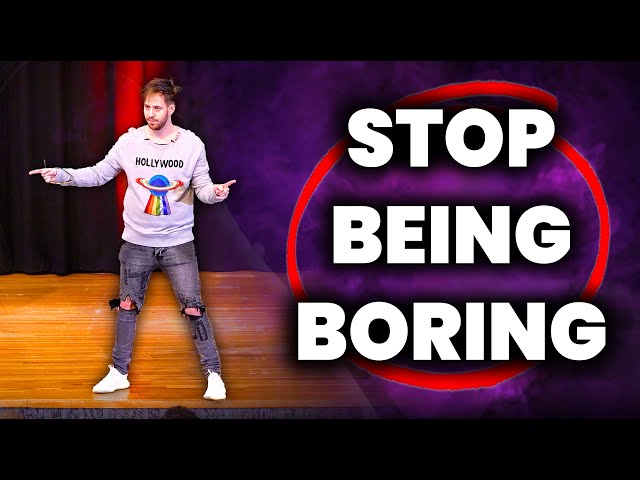If you’ve ever found yourself chasing after relationships that never seem to work out, or if you’ve felt stuck in a high school mindset when it comes to dating, you’re not alone. Learning how to stop being needy is a crucial step towards forming healthier, more fulfilling relationships.
The most toxic relationship pattern is chasing people you’re NOT meant to be with. Many adults still approach relationships like they’re in high school, focusing on who will make them look good or impress their friends, instead of thinking about who truly aligns with their values and goals. This type of behavior only reinforces neediness and insecurity.
Start by Defining What You Want
Here’s a crucial shift: Start by mapping out your ideal relationship. Who is your ideal partner? What are their values, interests, and passions?
Instead of being a “people pleaser” or feeling desperate to be with just anyone, get clear on what you truly want and deserve. Think of this as creating your own “ideal partner avatar.”
Stop Chasing Validation
One of the key ways to stop being needy is to stop chasing external validation. Whether it’s from a partner, friends, or even society, seeking approval outside of yourself only reinforces feelings of insecurity. Instead, focus on cultivating self-worth and confidence from within.
Be True to Yourself
When you meet someone, be your true self—insecurities, flaws, and all. Real relationships start when the honeymoon phase ends, and you both begin to see and accept each other’s true selves. Authenticity is key to how to stop being needy because it prevents you from seeking constant reassurance from your partner.
Look for “Raw Material” in Relationships
Remember, you don’t need to find someone perfect. Instead, look for the “raw material”—someone who shares your core values and goals but who, like you, is still growing. Relationships are about growing together, not finding someone who fits an ideal mold right from the start.
Learn How to Communicate Effectively
The most important skill in any relationship is knowing how to argue and fight in a healthy way. If you want to stop being needy and build a strong, lasting relationship, you must learn how to navigate disagreements effectively. I recommend reading “Crucial Conversations” to improve your communication skills and avoid toxic conflicts.
Breaking Free from Toxic Patterns
If you find yourself falling into old, toxic relationship patterns, it’s time to take a step back and reflect on what’s holding you back. Ask yourself: What are my relationship patterns, and how can I break free from them?
By identifying and addressing these patterns, you can start to build relationships that align with your true self, rather than settling for ones that reinforce your neediness and insecurities.
Stop Chasing, Start Attracting
Let’s stop chasing what’s not meant for us and start building something real. The key to how to stop being needy lies in shifting from chasing love to attracting it by living authentically and confidently.
Focus on Self-Worth
At the end of the day, your self-worth must come from within. When you’re confident in yourself and clear about your values, you’ll naturally attract the right people into your life. You’ll find that as your self-worth grows, your neediness disappears, and your relationships flourish.
You deserve a relationship that brings out the best in you and aligns with your true self. Start today by defining what you truly want and breaking free from old patterns.

Julien Blanc
Want to meet me in person? Get your ticket for the NO ANXIETY TOUR and take the next step toward a life without anxiety.
Frequently Asked Questions (FAQs)
What does it mean to be needy in a relationship?
Being needy in a relationship means relying heavily on your partner for emotional validation, approval, or reassurance. This often leads to insecurity and a lack of independence in the relationship.
How can I stop being emotionally dependent on my partner?
To stop being emotionally dependent, focus on building your self-worth and nurturing your independence. Cultivate hobbies, friendships, and personal goals outside the relationship.
What are the signs of neediness in a relationship?
Signs of neediness include constantly seeking attention or validation, feeling anxious when apart from your partner, or having difficulty making decisions without their input.
How do I become less needy in a relationship?
Becoming less needy involves recognizing your own value, focusing on personal growth, and communicating your needs in a healthy way. Building self-confidence and setting clear boundaries is key.
Why is it important to stop being needy?
Stopping neediness is crucial for building healthy, balanced relationships. It fosters mutual respect, independence, and emotional stability, creating a stronger foundation for long-term connection.



